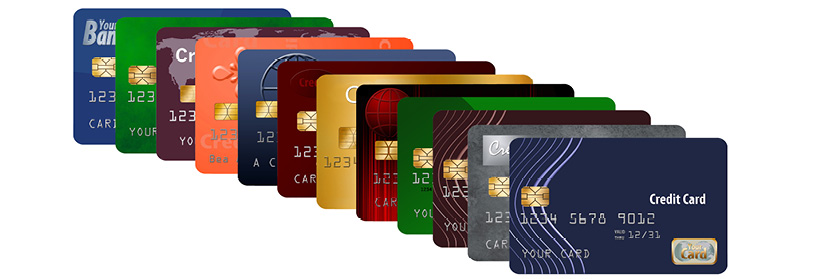
Credit cards are a top way to receive customer payments, but as a business owner you may receive a fraud claim or spot a questionable transaction. It pays to know how to handle these situations. Theft is all too common with credit cards, and you may be liable for fraud claims.
This article shows you how you can report credit card fraud when it happens and explains how you can decrease your liability.
Credit card fraud is when a credit card or related account information is used for purchasing goods or services without the cardholder’s permission. It can be from a stolen card, misappropriated card number, or forged card.
When fraud happens, there is a charge to cover fraud services in addition to recouping the customer’s losses. These charges fall to either the credit card issuer or you as the merchant.
Online transactions and swipe transactions are high risks, which means you as a merchant are liable. The liability falls on the issuer for chip cards, and we’ll explain this later in the article.
Additionally, if you don’t 100% follow an issuer’s fraud procedures, you increase liability. If multiple issues arise, you will also be categorized as a high-risk merchant by your merchant bank and processor, resulting in higher fees.
There are three terms often associated with credit card fraud, each with liabilities.
Card-Present Fraud occurs when a person is standing in front of you as you run the order. In this case, the card may be counterfeit or stolen, or the individual may verbally provide account details. In these situations, banks are typically liable, though you will still have to pay the standard transaction fee for that type of purchase.
Card-Not-Present Fraud occurs when a person provides credit card details over the phone or online. Card-not-present transactions are considered high-risk purchases of which you will be liable.
Friendly fraud is when a less-than-reputable customer makes the purchase but still disputes it as fraud. In this case, the customer will be liable.
If the order was placed and you suspect fraud, the best course of action is the following:
When possible, delay order fulfillment for a few days so that you can get the verifications you need. If you fulfill and/or ship an order quickly, you may become liable for the transaction.
Contact the customer by email or over the phone to ensure the order is authentic. You can also contact the card-issuing bank; they can reach out to the customer for verification.
If you have a registration service/card protection service, contact them; this will help reduce the number of chargebacks you experience.
The best way to avoid fraud is by preventing it before the sale. Here are ways to do so:
If a sale seems uncharacteristically good, such as overly large, and requests immediate delivery, you may suspect fraud.
Ask for a driver’s license, phone number, and address associated with the card. You can also confirm the address by contacting the cardholder’s issuing bank.
Call the issuer’s authorization center and ask for a Code 10 authorization. They will assist with approval by providing any additional data you need and can also help by calling the police if necessary.
Europay, Mastercard, and Visa (EMV) chips are standard today and provide an added level of protection against swiping cards. In the case of card-present charges, you can be released from liability by using these newer chip readers instead of swipe technology.
An address verification system (AVS) requires the customer’s zip code and address number (not the full address) before each purchase.
Requesting the CV number during a phone or online transaction means the customer is more likely to have the card on hand, reducing fraud risk.
Your Payment Processor may have ways to detect fraud that isn’t readily apparent to you. Inquire with them about how you can reduce the risk of fraud.
After a fraud occurrence, updating your policies helps ensure it doesn’t happen again.
Learn the rules set by card issuers, networks, processors, and your merchant account, so you know how to fulfill your obligations and limit liability. If you don’t, you can lose your merchant account and risk high fees for transactions.
Reliable payments from customers through a reputable payment processor benefit everyone.
BNG Payments is payments processing made easy. Whatever your processing needs, we focus on security and make it easy for merchants to accept credit and debit cards, mobile payments, e-commerce, and more.
Contact BNG Payments to find out what we can do for your business.
